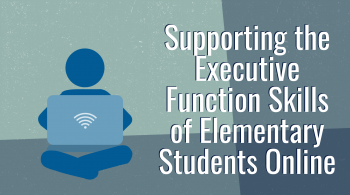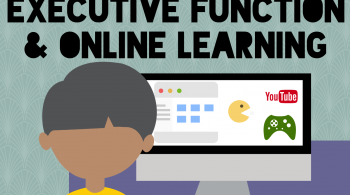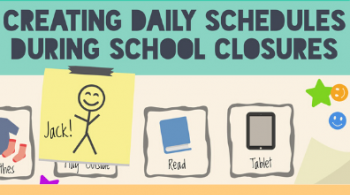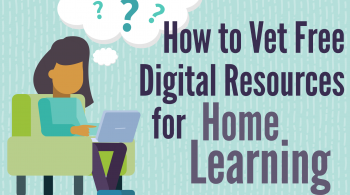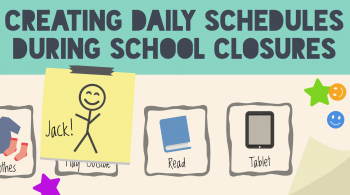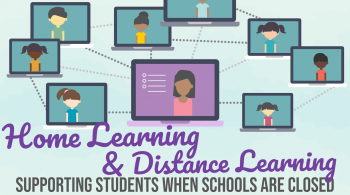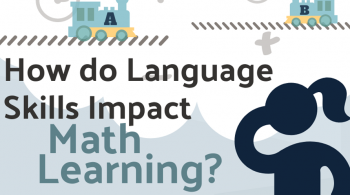 May 31, 2016
May 31, 2016
We asked Maureen van Stone, the director of Project HEAL (Health, Education, Advocacy, and Law) at Kennedy Krieger Institute, Maryland’s only medical–legal partnership, to shed some light on common questions regarding the Individuals with Disabilities Education Act (IDEA) and meeting the needs of students with intellectual disabilities.
Eligibility:
How does a school system determine if a student with an intellectual disability is eligible for special education and related services?
IDEA includes 13 potential federal eligibility codes including "intellectual disability." Intellectual disability (ID) refers to children who have both cognitive and adaptive weaknesses. Students who have a clinical diagnosis of ID among other clinical diagnoses may also be found eligible under the federal eligibility category of “multiple disabilities.” To be eligible, the student must have two impairments in the following domains: cognitive, physical, or sensory.
Students who are suspected to have an intellectual disability may receive a combination of both formal and informal assessments. These assessments may include an educational assessment, a cognitive assessment, an adaptive assessment, a social-emotional assessment, and an observation.
Graduation and Transition Planning:
What are the paths to high school completion for students with intellectual disabilities? How can school teams help a student and their family plan for transition?
Students with ID may work toward a Maryland high school diploma, certificate of program completion (if the student meets the criteria to participate in Maryland's alternate assessments), or a general education diploma (GED). If a student with ID is working toward a Maryland high school diploma, the student will have to earn the required credits for the jurisdiction where he or she attends school (minimum of 21 credits), meet the attendance requirements, and meet the service learning requirements. The student's transition will include postsecondary goals or outcomes in the following areas: an educational or training goal, an employment goal, and an independent living goal (if appropriate). All postsecondary goals must be linked to a student's present levels of academic achievement and functional performance. For a student with an intellectual disability who is working toward a high school diploma, the provision of supplementary aids and services (e.g., adaptive equipment, adult support, preferential seating, visual schedule, etc.) can be critically important to his or her success with the general education curriculum.
Students with ID may wish to participate in their transition planning with the IEP team. Many IEP teams will invite students to the first meeting, which takes place during the academic year when the student turns 14--years--old. Students will participate in age-appropriate transition assessments to help determine their postsecondary goals or outcomes.
Students with ID may wish to attend a community college, a college or university with supports through the disability services office, pursue employment or supported employment opportunities, or apply for adult services agencies such as the Developmental Disabilities Administration, DORS, DHMH, or others.
Least Restrictive Environment (LRE):
What is Least Restrictive Environment (LRE) and how does it apply to students with intellectual disabilities?
The IDEA requires that students with ID must be educated with their nondisabled peers to the maximum extent that is appropriate for their unique needs. Meaning, a student with ID may participate in the general education curriculum with supplementary aides, services, and programmatic supports, may access services in both general education and special education classrooms, may participate in a specialized program for students with ID, or may attend a public separate or private separate day school, depending on what is determined to be appropriate for their unique needs.
There is no definitive full-scale IQ score to determine whether or not a child with a disability will work towards a Maryland high school diploma or certificate of program completion. There are a number of factors to consider, including: a description of the student’s instruction, data, classwork, performance on district-wide assessments, and information on the student’s IEP.
Extended School Year Services:
What is ESY? How does a student become eligible for ESY?
Extended school year (ESY) services are services provided beyond the academic year that are necessary in order for a student to make educational progress during the school year. These services must be individually designed to meet specific goals and objectives included in a student’s IEP and are part of what constitutes a free appropriate public education for the student who receives them. ESY services are not simply an extension of time in school, an automatic summer school placement, or a summer enrichment program. Parents sometimes confuse the term ESY and summer school.
Students with ID may be eligible for ESY to work on “critical life skills” based on a number of factors, including: regression/recoupment, emerging skills or breakthrough opportunities, degree of progress toward mastery, the nature and severity of their disability, or special circumstances. It is important to note that the federal law does not define critical life skills, and there are a number of interpretations of the term among states, school systems, and IEP teams.
Extracurricular Activities:
What rights do students with ID have to participate in extracurricular activities?
Students with ID have a right to take part in programs occurring before and after school and in the summer. The school system must ensure that each child with a disability has the supplementary aids and services determined by the child's IEP team to be appropriate and necessary for the child to participate in nonacademic and extracurricular services and activities. The supplementary aids and services may be modified equipment, adult support, transportation, accessible bathrooms, or supervised breaks.
For More Information:
If you are working with a family or know a family raising a child with an ID who needs further assistance with navigating the special education process, please visit the Project HEAL website for additional information:







